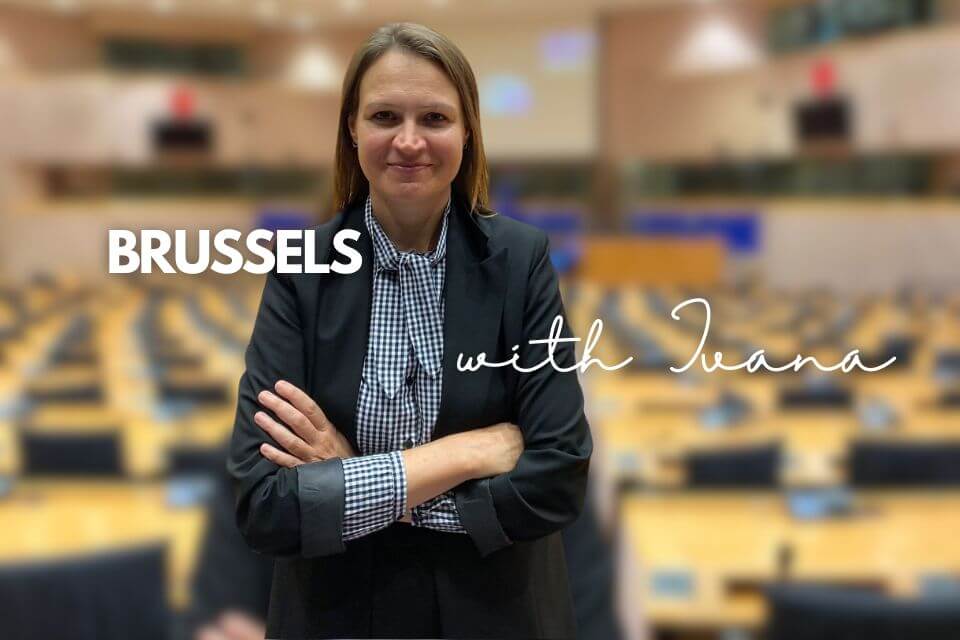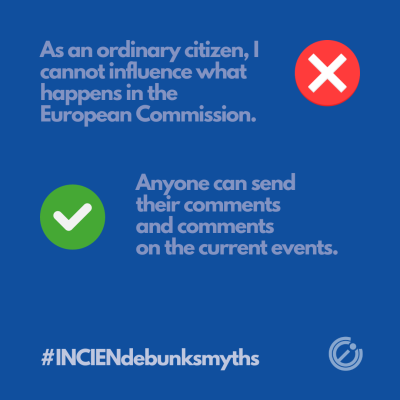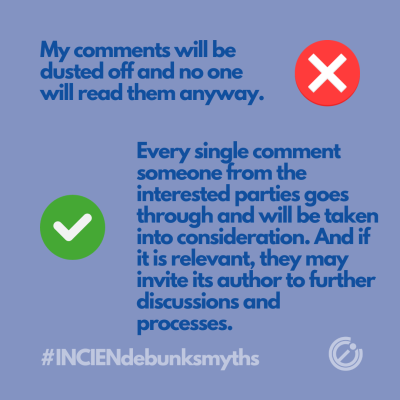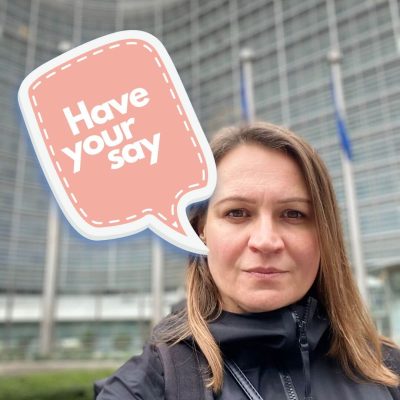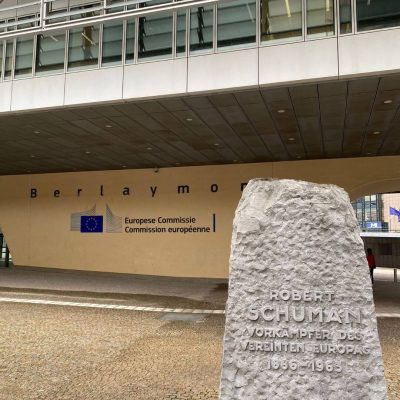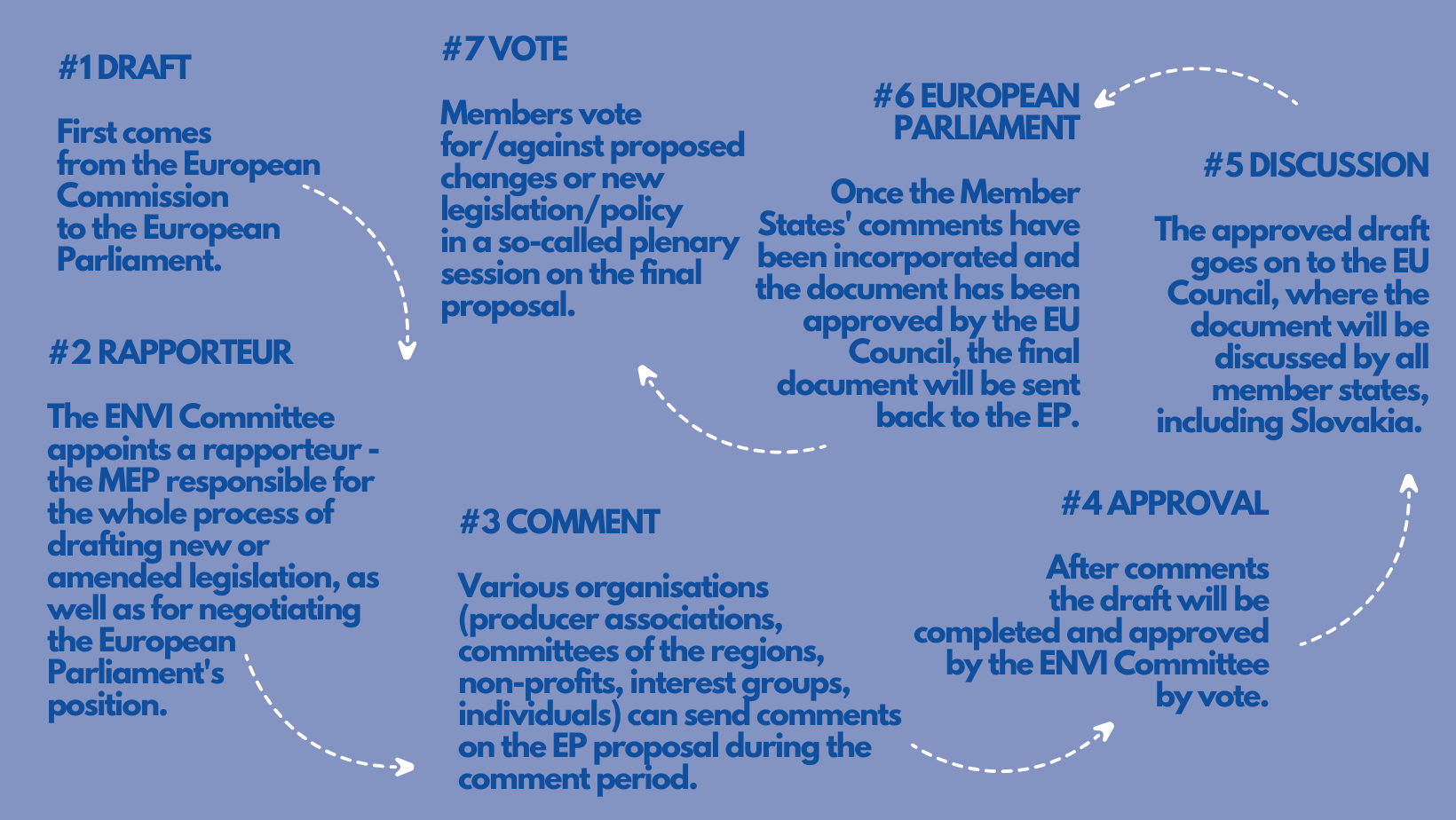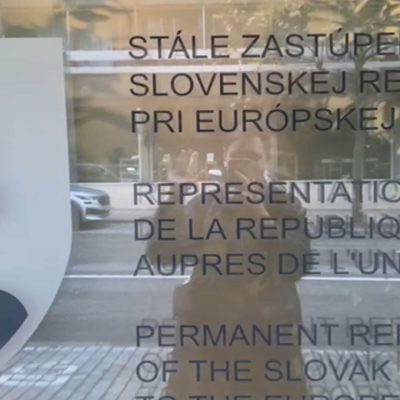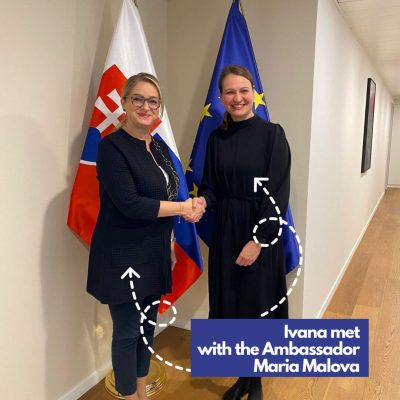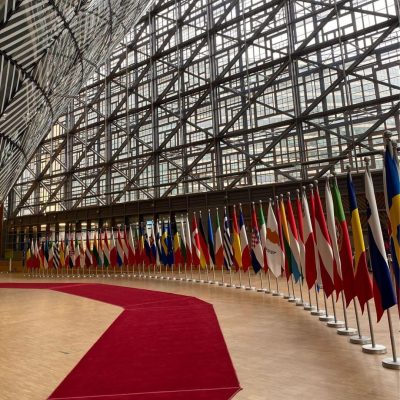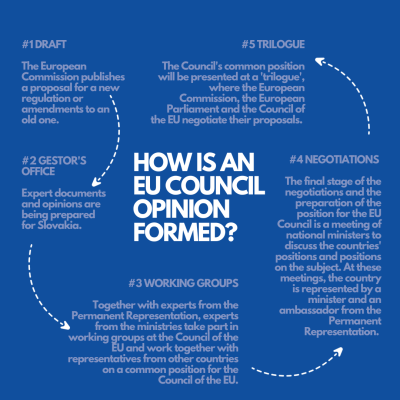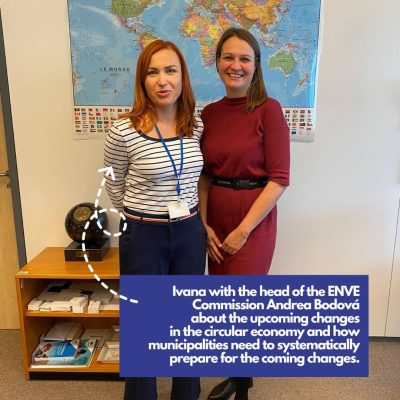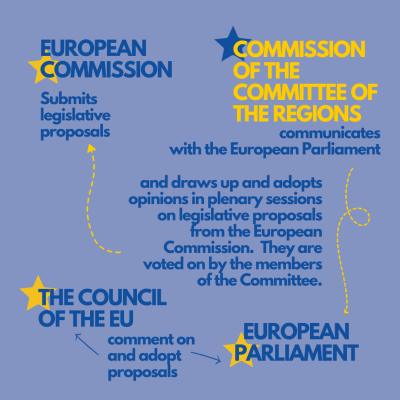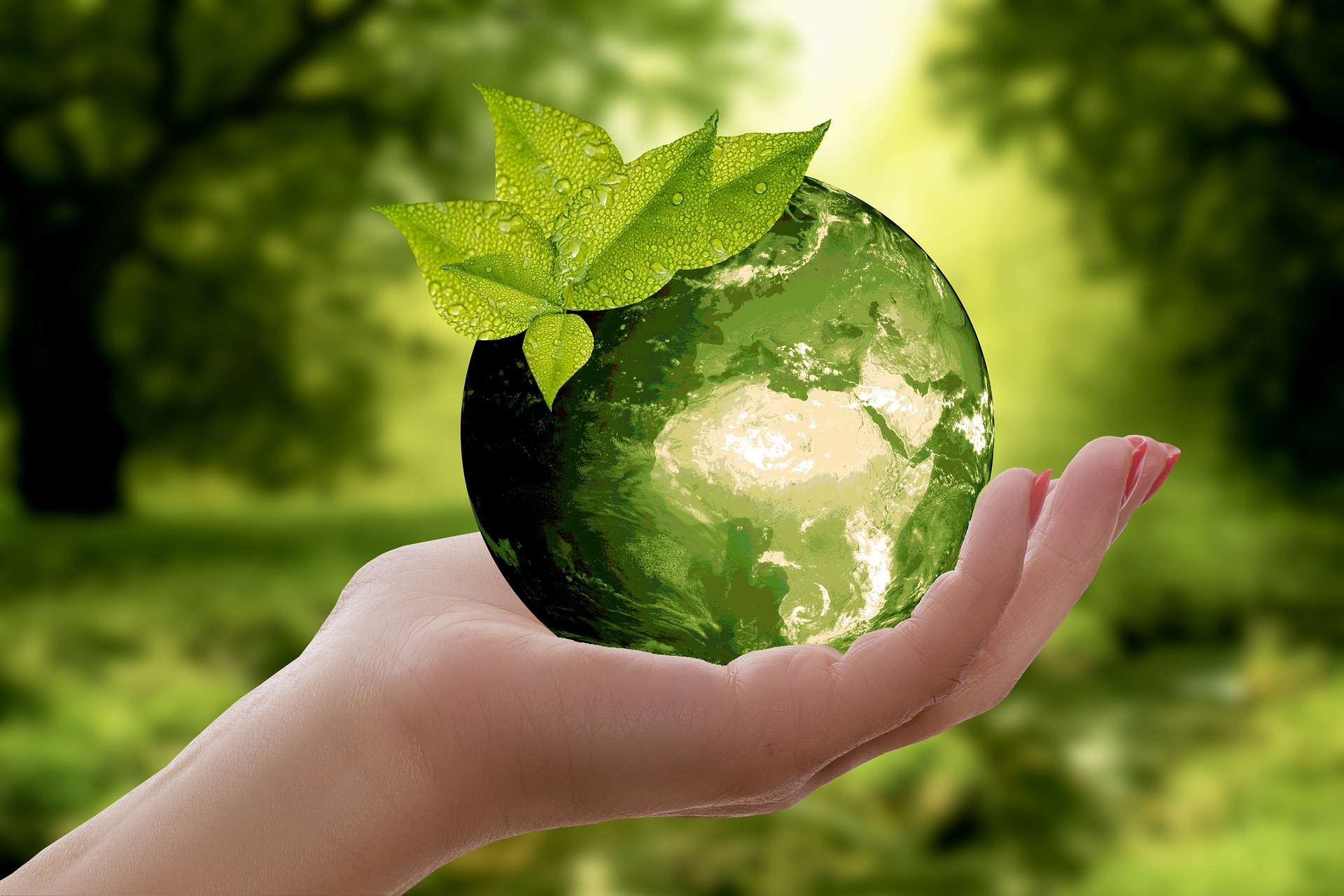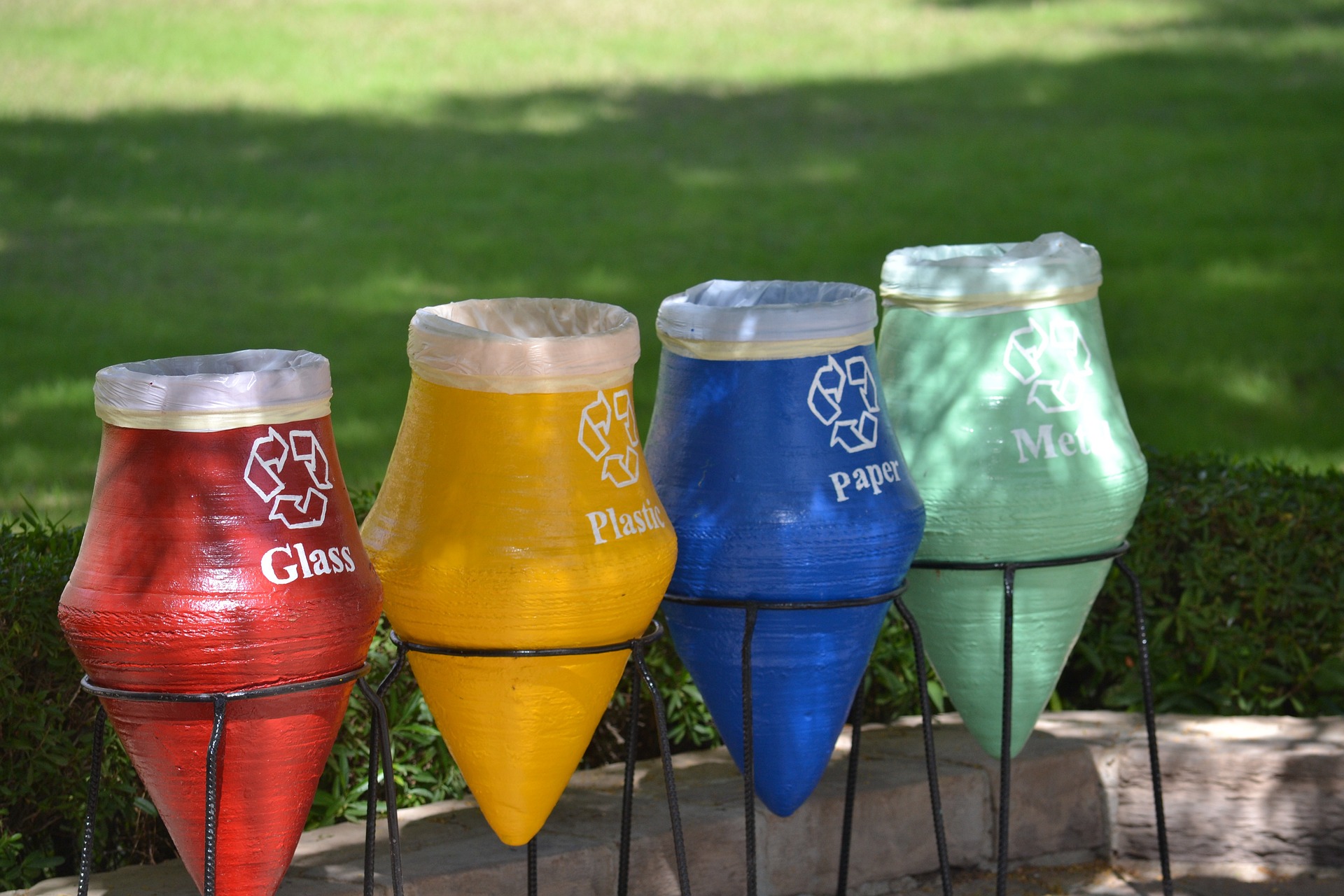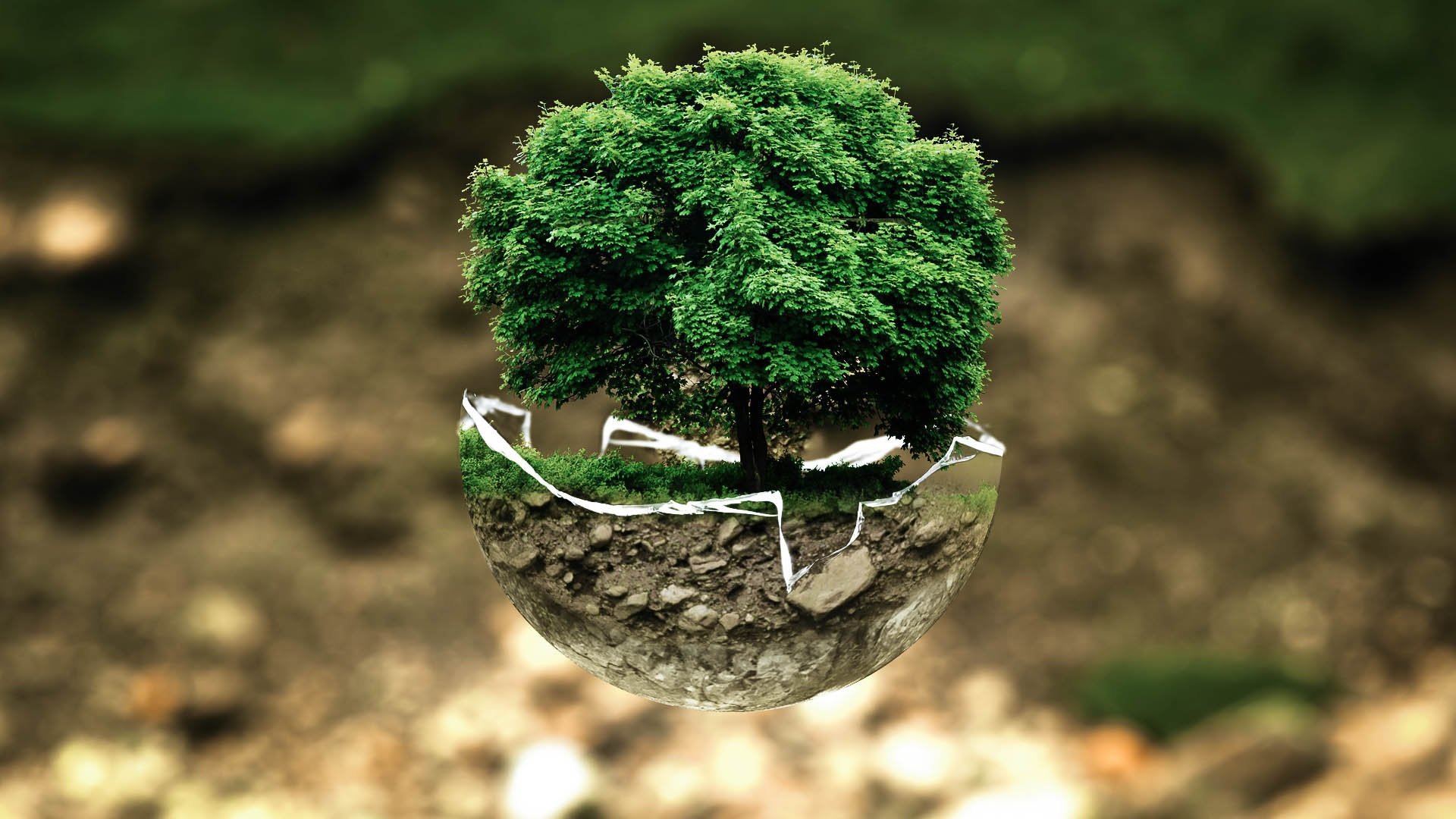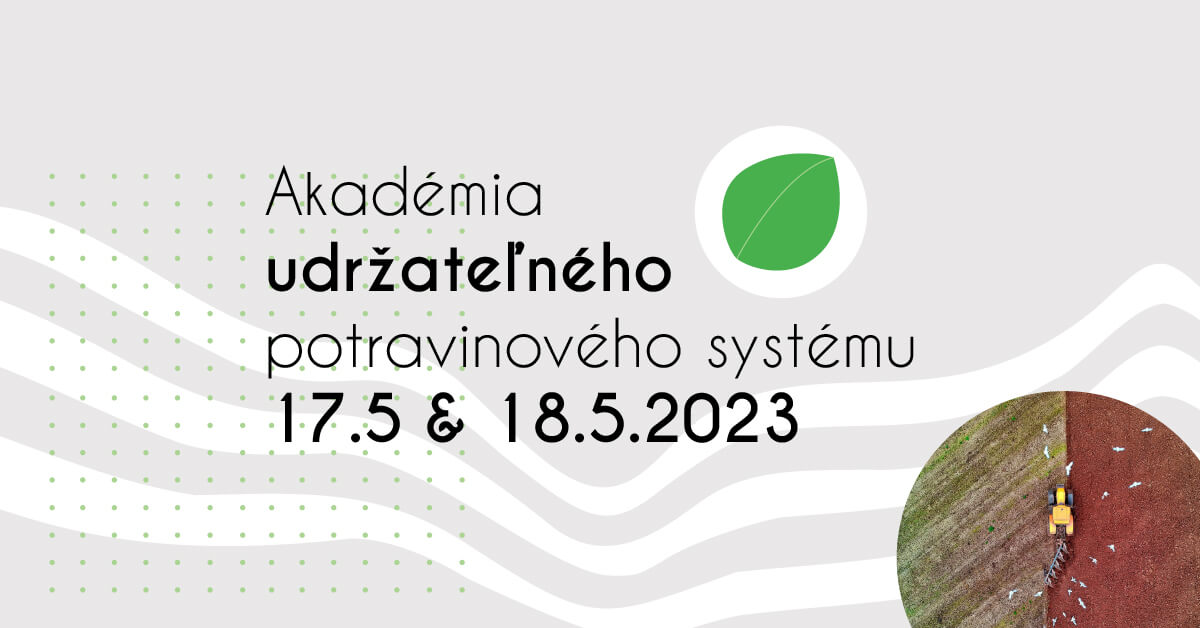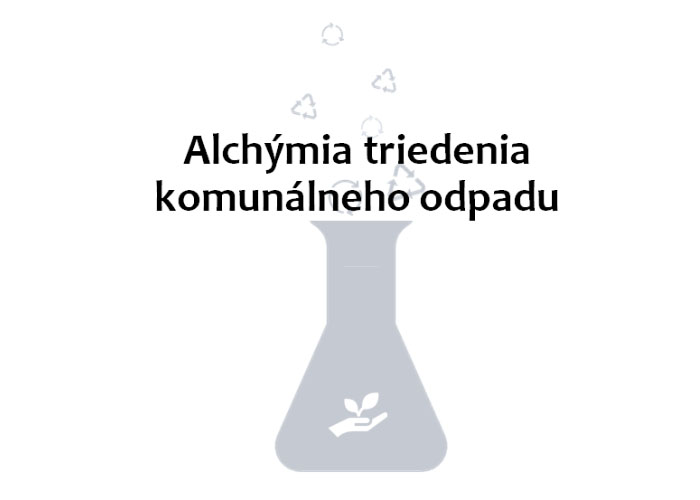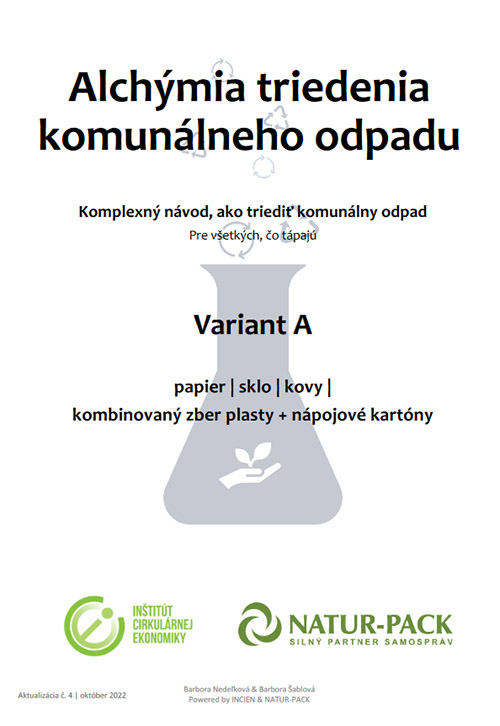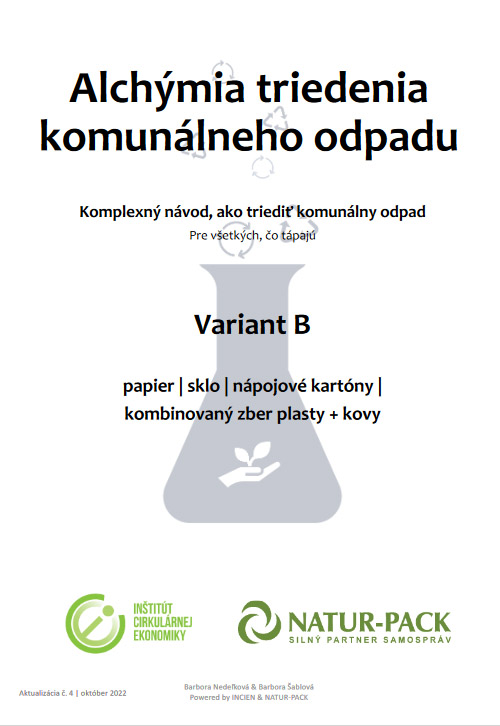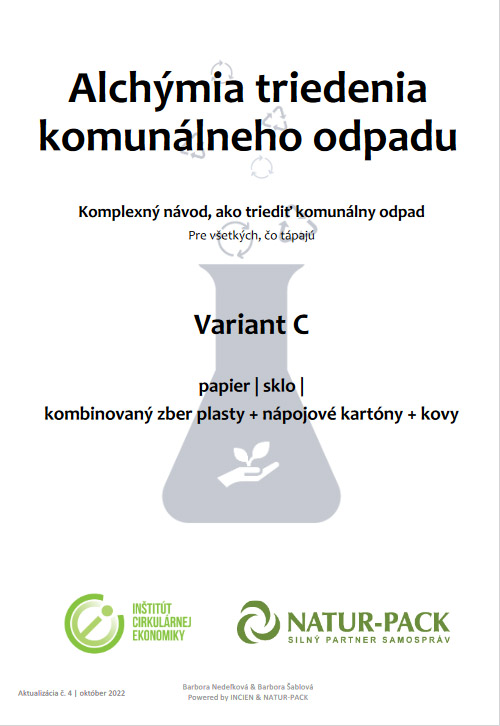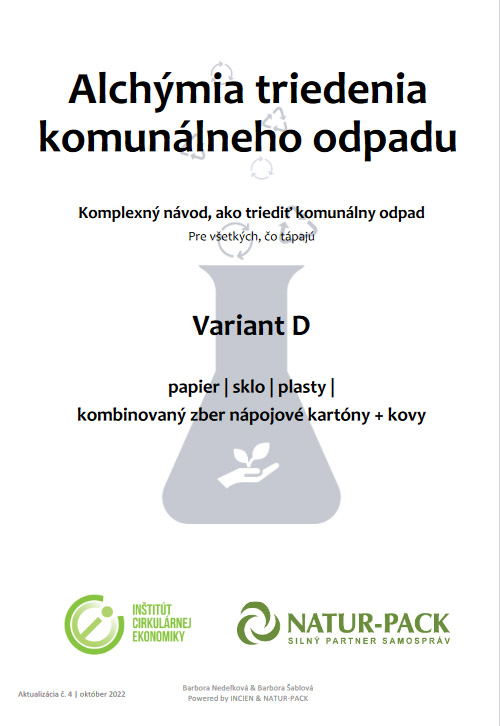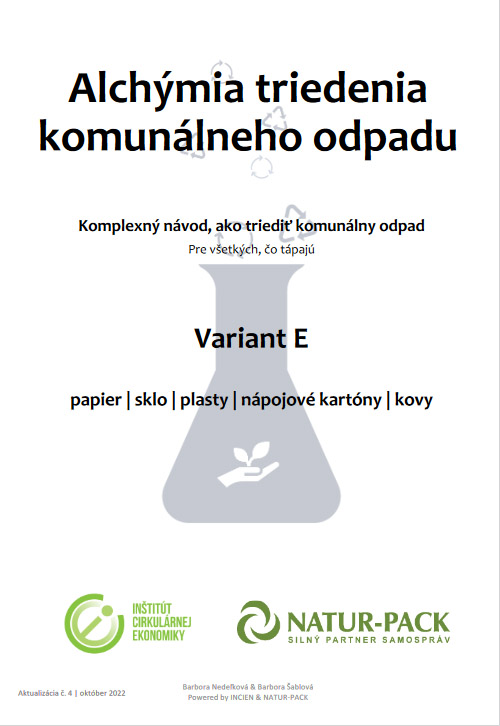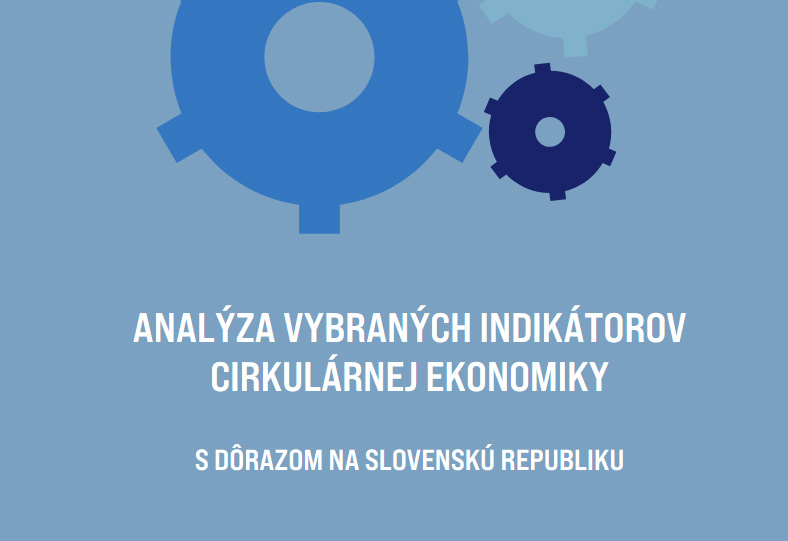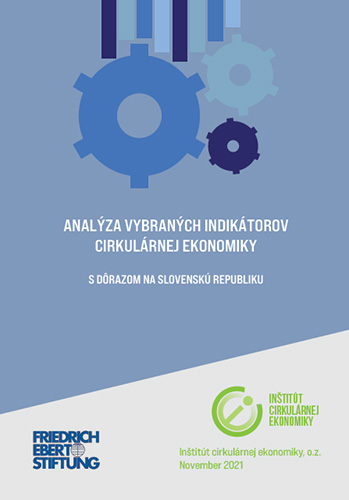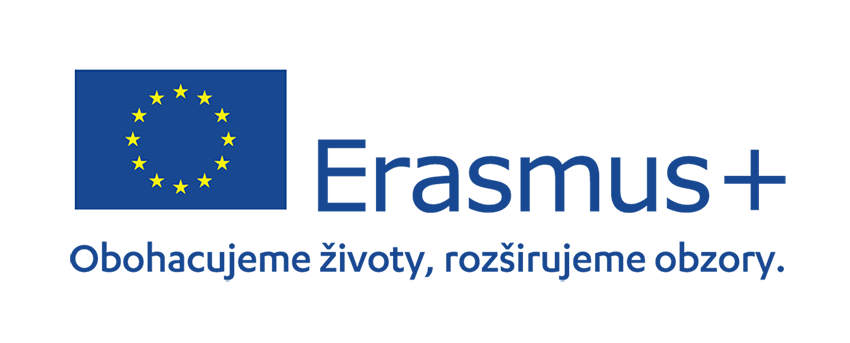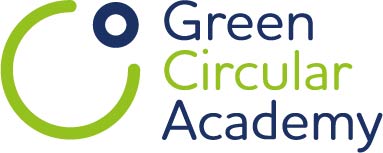We took a bold step: we travelled to Brussels – the centre of environmental policy-making and circular economy legislation at European level.
For 30 days, our Ivana Maleš closely followed the work of colleagues from the Circular Economy team at the European Environmental Bureau (EEB). During her work in EEB, she met with representatives of various European institutions and in short reports she gradually debunked various myths – for example that Slovakia is not involved in policy making.
In this text you will learn:
- which institutions are involved in European policy-making
- how they affect us and what they mean in practice
- how we can contact them, talk to them and be part of the preparations for further changes
It sounds so complicated – environmental policy, legislation, biodiversity loss, climate crisis, resource crisis, pollution, circular economy… Ordinary people find it difficult to navigate this stream of information. They do not have as much information as the experts who deal with these topics.
Often people even doubt whether it makes sense to address these topics at all, whether it is somehow relevant to them. They cannot think of concrete solutions that they could implement in their home or in their village. They cannot imagine how it will affect their daily lives. One of the common arguments is that they do not feel that their voice is heard and that they cannot contribute in any way to making things better. Because they feel that nobody hears them.
That’s why we want to spread the word about how environmental policy and legislation on the circular economy is being developed – to give ordinary people an overview of the whole process and the importance of our involvement and interest in policy matters, including at EU level.
Slovakia is a full member of the EU. And so – like Germany, France, Spain or Estonia – we can get involved at different levels and influence what we will eventually have to deliver. In this way, we will be better prepared for the changes that will come to us in a few years’ time.
Publicly available shame
When a decision comes from the European Commission to change or set new targets, we in Slovakia are very resistant to having to meet them. We start talking about how to do things the old way and how change will be difficult, even impossible.
Our membership of the EU gives us various obligations, which we have transposed from the EU into our national legislation. However, we are often among the countries that do not meet these obligations or the targets set. Why are we not ready for them? After all, they are coming to us at the same time as they are coming to other countries. Are we stuck in communication? If so, where? Why are we not fulfilling our obligations? It seems that in Slovakia we do not like change.
Any change is met with great resistance and too much energy is wasted in not making it. In time, however, it always turns out that we are just wasting our time. We need to catch up with what other regions have done precisely because they have looked at change as an opportunity to develop.
The circular economy is no exception to this. Apart from a few infirgements due to non-compliance in the past, we have more to come. And as the EU analyses, finalises and officially verifies the results – everybody knows about it.
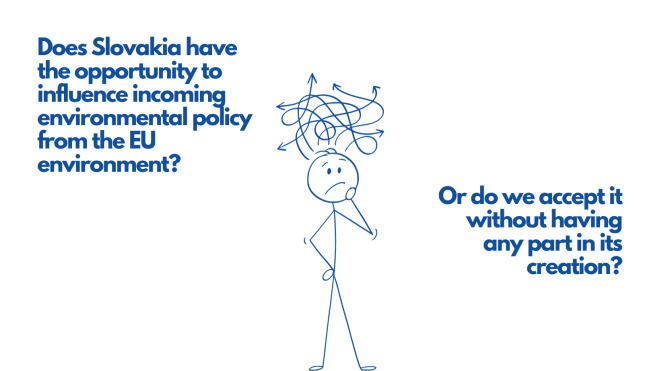
European Commission = live people
Does the word European Commission strike you as an abstract concept and you don’t know what’s behind it? The Commission is made up of specific authorities and specific people who you, as citizens, employees, civil servants or entrepreneurs, can turn to at any time.
The European Commission is the EU’s politically independent executive arm. It is the only EU institution that submits legislation to Parliament and the Council for approval. In addition:
- manages EU policies
- allocates funds
- enforces EU law
- represents the EU on the international stage
It has also produced the European Green Deal and the Circular Economy Action Plans, on the basis of which things are also developing in the circular economy (explained below).
It is not a closed institution that commands and we have to obey. On the contrary, it is open to comments from citizens, non-profits, ministries and other stakeholders. It is not a Brussels dictate.
If you want to make your voice heard and influence the processes in the pipeline, you can do so from the comfort of your own home. On the Have your say page you will find the current initiatives running. At any time, anyone can write a comment, send links and documents – anonymously, as an individual, or even for your employer (if they agree).
The European Commission is the main institution that prepares policies and first proposals for legislation. It invites all Member States to participate in the whole drafting process already during the preparation of new documents through various questionnaires, where Member States are invited to present their data, arguments and opinions already during the preparation of the whole document.
Political leadership is provided by a team of 27 Commissioners (one from each EU country), led by the President of the Commission. The Executive Vice-President of the European Commission for the European Green Deal is Slovak! He is Maroš Ševčovič, who is also the European Commissioner for Inter-institutional Relations and Strategic Perspective.
Every comment you post is sure to be read by someone. It’s systematic work, so don’t expect one message to change everything. However, each of us can start a discussion with our opinion. If we really want to push for change, we need to be active.
The day-to-day running of the Commission’s activities is carried out by its staff (lawyers, economists, experts in different areas of society), who are divided into departments known as Directorates-General (DGs). Each is responsible for a specific policy area. For the circular economy, this is DG Environment, where much of the environmental agenda is dealt with – for example packaging, Eco Label, textiles, plastics, chemicals or green public procurement. In addition to DG Environment, the circular economy is also dealt with in DG Research.
When the Commission prepares a document, it then goes to the European Parliament and the Council of the EU for comments, while the public and various interest groups can also comment on the Commission’s proposal.
The European Green Deal – an ambition with a deadline
The European Green Deal is a framework agreement that was agreed in 2019 with the aim of making Europe the first climate-neutral continent. The European Commission has adopted a set of proposals to reduce net greenhouse gas emissions by at least 55% by 2030 compared to 1990 levels by adapting EU policies on climate, energy, transport and taxation.
How does the circular economy relate to this? After all, it’s just waste and recycling, isn’t it?
Not at all! This misinterpretation of the circular economy is very common in Slovakia. With the circular economy, natural resources are saved, only safe and long-lasting products are produced, and sustainable buildings are constructed and operated using materials that are produced with an emphasis on low emissions during construction and operation.
In the circular economy, food crops are sustainably grown and consumed so that we do not generate food waste. Food and products are packaged in reusable, recyclable packaging.
In the circular economy, food crops are sustainably grown and consumed so that we do not generate food waste. Food and products are packaged in reusable, recyclable packaging.
At the EU level, the circular economy is one of the tools to move towards climate neutrality, tackling climate change, biodiversity loss, the resource crisis and pollution.
Overall, circularity is measured and controlled using a variety of indicators. These relate to the flows of materials that we use as a society and the emissions that are produced during production and consumption. By managing in this way, we ensure that biodiversity is not lost, that we protect our environment so as to mitigate the effects of climate change. In doing so, we are also protecting the health of the population and providing them with a safe environment that is economically stable.
The Circular Economy Action Plan
The Circular Economy Action Plan is part of the European Green Deal package and introduces new initiatives for the whole life cycle of products to modernise and transform our economy while protecting the environment. Its ambition is to make sustainable products last longer and to enable our citizens to participate fully in the circular economy and benefit from the positive change it brings.
According to a recent Eurobarometer survey, increasing waste is among the top 3 environmental concerns of citizens. Respondents believed that the most effective way to tackle environmental problems is to change the way we consume and produce.
You, me and the European Parliament
The European Parliament (EP) is the only directly elected EU institution. It performs an unmistakable function in the development of environmental policy and circular economy legislation. It has the important task of commenting on proposals put forward by the European Commission. At the same time, it can also proactively push for a topic that is important to be legislated on.
The key committee for the circular economy within the EP is the ENVI Committee (Committee on the Environment, Public Health and Food Safety), which leads the whole process of either drafting new or amending existing legislation.
What does the legislative process look like?
Under the rules, Slovakia currently has 14 MEPs out of 705 and will have one more in the next period, i.e. 15. MEPs are elected for 5 years.
The next European Parliament elections will take place on 6-9 June 2024, when your vote could make the difference in how we become more involved in environmental policy-making at European Parliament level.
Who defends our interests in Brussels?
Slovakia’s interests are also represented in the EU through the Permanent Representation of the Slovak Republic to Brussels. It plays a central role in communication between Slovakia and the European institutions:
- defend Slovak positions as effectively as possible
- promote our interests
- prepare regular ministerial meetings
- also meetings of heads of state or government (EU summits)
Our interests are defended by a team of diplomatic representatives from all ministries. This team thus forms a kind of extended arm of the ministries in promoting positions, proposals and recommendations in the negotiations within the EU Council.
The technical positions of the individual ministries are important for the preparation of the negotiating positions. For the circular economy, this is the Slovak Ministry of the Environment or the Slovak Ministry of Economy. For the bio-economy and safe food system, it is the Ministry of Agriculture and Rural Development of the Slovak Republic. Their task is:
- keep track of what’s happening at EU level
- communicate actively with the institutions
- prepare our country’s positions in various areas also in cooperation with / through the Permanent Representation of the Slovak Republic in Brussels
The common positions of all Member States influence future policy and legislation. It is therefore important that we actively participate in these negotiations and are part of the development of the new rules that we will subsequently implement.
The Permanent Representation also maintains contacts with other European institutions, in particular the European Parliament, especially Slovak MEPs, and the European Commission. It is also in contact with everyone affected by the EU. This includes Slovak businesses, regions, lobbyists, consultants, academics and the media.
Council of the European Union
It is made up of ministerial-level representatives of each member state, who are empowered to commit their governments to certain goals. Together with the European Parliament, the Council of the European Union adopts legislative proposals submitted by the Commission. Together, the representatives seek the best solutions for all. This search also takes the form of negotiations. This is the main business of the Council.
It shall be chaired by one member state at a time on a rotating basis for a period of six months. The current Presidency is held by Spain. Slovakia will next hold the Presidency in 2030. However, Slovak ministers also sit on the Council today and have the opportunity to communicate our positions.
Slovak municipalities and their role in European policy making in the circular economy
The European Committee of the Regions (CoR) is involved at various stages of EU law-making. CoR commissions draw up opinions on EU legislative proposals. Its members meet in plenary sessions to vote on and adopt these opinions.
The legislative work of the European Committee of the Regions covers a wide range of areas affecting local and regional authorities. It is carried out by 6 thematic committees. One of these is ENVE – Commission on Environment, Climate Change and Energy. It prepares policy messages related to the European Green Deal, such as:
- climate change
- Energy
- European Union space policy
- biodiversity
- circular economy
- zero pollution
The Committee also works closely with national, regional and local authorities. This ensures that their views are heard and promotes political debate – not only in Brussels, but also in EU regions and cities and online.
It organises consultations to get input from local and regional authorities, experts and other stakeholders. This allows them to contribute to the opinions drawn up by CoR members and adopted at EU level.
National Delegation of Slovakia consists of nine members and nine alternates. Together, they represent their local and regional authorities. They are nominated by the Member State through the interest associations representing the municipalities. For Slovakia, these are K8, the Union of Slovak Cities and ZMOS. Members receive information from the CoR and also participate in working groups and meetings.
70% of the changes that are coming in the legislation will be implemented at the level of regions, cities and municipalities. These changes are felt with almost every change in circular economy legislation.
According to the study Sustainability in Slovak Cities, which we conducted this year, our municipalities are not as prepared for these changes as municipalities abroad. Why? The problem is most often staff capacity and difficult financing from external sources.
Non-profit organisations – an important stakeholder also in European policy-making in the circular economy
Last but not least. Let’s take a look at the role of non-profit orgazinations. Is there a difference in how Slovak and European ones work?
Non-profit organisations also have an important role to play at EU level. While national non-profit organisations implement policies and various projects on the ground at local level, non-profit organisations at pan-European level also have a lot of work to do:
- monitor developments in environmental policy and legislation
- analyse data
- consists of various expert studies and publications
- send their comments to the Commission, MEPs and national ministries before the EU Council
- they also carry out various researches and surveys and accordingly publish their so-called position papers, where they clearly describe their position on a specific topical issue
Non-profit organisations that operate at a pan-European level often bring together non-profits in different countries in the EU and beyond. The 10 largest of these are the so-called GREEN 10, which coordinate their positions and actions on a number of common agendas. INCIEN is a member of one of them – the European Environmental Bureau.
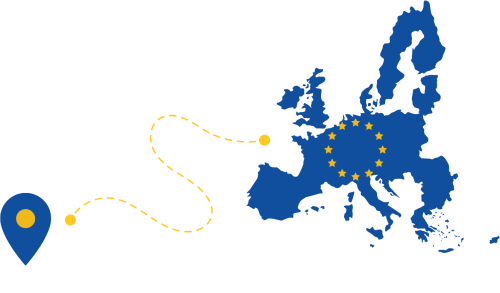
Some of the largest non-profit organisations pursuing circular economy policy include Ellen McArthur Foundation, Zero Waste Europe, Reloop, Right to repair a and many others.
How to get involved in the work of non-profit organizations?
If you have a job outside of the nonprofit sector, you can support or volunteer. The nonprofit sector is staffed by professionals who keep an eye on what’s happening on the policy side and adjust the activities they do based on that. Some are more involved in publishing, others in analysis and policy setting, or in fieldwork or community building. Therefore, these organisations also need to be staffed by experts who understand the issues and who can develop the subject matter professionally. This is also what INCIEN strives to do in the field of circular economy in Slovakia.
We aim to build capacity and initiatives, work on legislation and raise awareness of the circular economy as a tool to address all the crises we face: climate, biodiversity loss, resource crisis and pollution.
EU TERMS OVERVIEW
Institutions and bodies:
- European Union
- European Commission
- European Parliament
- Council of the European Union
- ENVI Committee
- Permanent Representation of the Slovak Republic in Brussels
- European Committee of the Regions
Other:
- Action plans for the circular economy
- Commissioner
- Directorates-General
- DG Environment, DG Research
- ENVE – Commission for Environment, Climate Change and Energy
- GREEN 10
Project name: European Green Deal – deal for our common sustainable future
ERASMUS+ funded project. Project number: 2023-1-SK01-KA122-ADU-000129633
The project is implemented by the Institute for Circular Economy, o.z. Belinského 3, 851 01 Bratislava
“Funded by the European Union. However, the views and opinions expressed are those of the author(s) alone and do not necessarily reflect the views and opinions of the European Union and the awarding body. Neither the European Union nor the awarding authority is responsible for them.”
![]()

